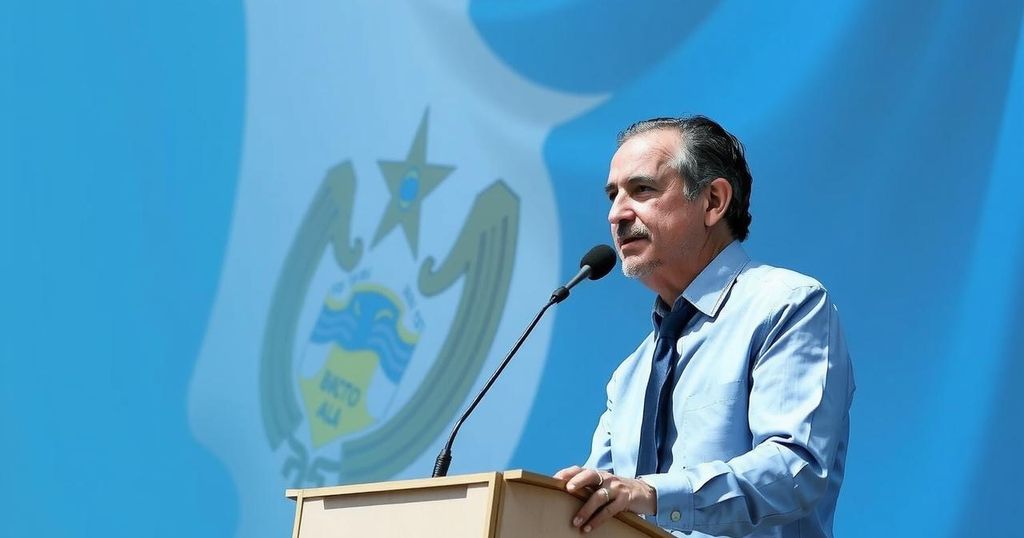Politics
2024 ELECTIONS, ALVARO DELGADO, ARGENTINA, ASIA, BRAZIL, BROAD FRONT, COLORADO PARTY, DELGADO, ELECTION, ELECTIONS, LAC, LACALLE POU, MEXICO, NATIONAL PARTY, NORTH AMERICA, OR, ORSI, PHILIPPINES, PRESIDENTIAL ELECTION, ROSARIO GUSQUE, SENATE, SOUTH AMERICA, TRADE RELATIONS, VOTER TURNOUT, YA, YAMANDU ORSI
Isaac Bennett
0 Comments
Uruguay Prepares for Tightly Contested Presidential Runoff Election
Uruguay is set for a close presidential runoff on November 24 between center-left candidate Yamandu Orsi and conservative Alvaro Delgado. Recent polls indicate a tight race with less than 25,000 votes likely separating the candidates. Orsi aims for a modern left approach while Delgado seeks continuity from the current government. The election occurs against a backdrop of relatively stable Uruguayan politics, differing from other Latin American nations.
Uruguay’s presidential election is headed for a tightly contested runoff scheduled for November 24, 2023. In this second round, Yamandu Orsi, representing the opposition’s center-left Broad Front, will compete against Alvaro Delgado of the conservative coalition. Early polls indicate that the race is extremely close, with a potential margin of less than 25,000 votes separating the candidates. Orsi won 43.9% of the votes in the initial round while Delgado secured 26.8% but benefits from support from the conservative Colorado Party, amplifying his total to approximately 42% when combined with that of his National Party.
This election occurs in a context distinct from many recent Latin American elections, characterized by inflammatory right-left divisions as seen in nations such as Argentina and Brazil. Uruguay’s political environment remains notably stable, with both candidates sharing moderate views which are reflected in their platforms. Orsi has opted for a platform promoting a “modern left“ approach without drastic policy shifts, whereas Delgado seeks to continue the popular policies of the current administration under President Luis Lacalle Pou, who is barred from seeking re-election at this time.
Both candidates face challenges in securing votes from about 8% of the population who favored smaller parties during the first round, alongside those who did not participate in the previous election. Polling analysts suggest that recent campaign efforts, including a televised debate, have not sufficiently swayed undecided voters. The prevailing economic conditions in Uruguay, which remain more favorable than in many developed nations, could influence voter sentiment as they consider the direction of government policy. In summary, the conclusion of what has been a significant electoral year could be heavily impacted by voter perceptions around economic stability and political continuity.
The doors of ballot stations will open at 8 a.m. local time, closing at 7:30 p.m., with preliminary election results expected shortly thereafter. Both candidates must navigate the shifting tides of public opinion carefully, especially in a climate where dissatisfaction with incumbent parties is prominent on a global scale. Analysts forecast a compelling conclusion to this electoral saga, which will undoubtedly shape the next chapter in Uruguayan politics.
The political landscape in Uruguay during the 2023 presidential elections is defined by a competitive atmosphere between moderate candidates, contrasting sharply with the polarized environments witnessed in several other Latin American countries. With a population of approximately 3.4 million, Uruguay has shown resilience in its democratic practices and continues to emphasize a politically stable and moderate approach, facilitated by overlapping ideologies within its major political coalitions. The upcoming runoff reflects a culmination of campaigns attempting to garner support amidst economic concerns and an increasing desire for alignment with voters’ needs.
In conclusion, the imminent runoff election for Uruguay’s presidency between Yamandu Orsi and Alvaro Delgado marks a pivotal moment for the nation. The tight race, with both candidates representing moderating political ideologies, highlights the unique context of Uruguayan politics in a broader Latin American landscape characterized by division. Voter sentiments, shaped by economic considerations and past performance of the government, will play a crucial role in determining the election’s outcome and potentially setting the direction for the country’s policies in the coming years.
Original Source: www.arabnews.com




Post Comment